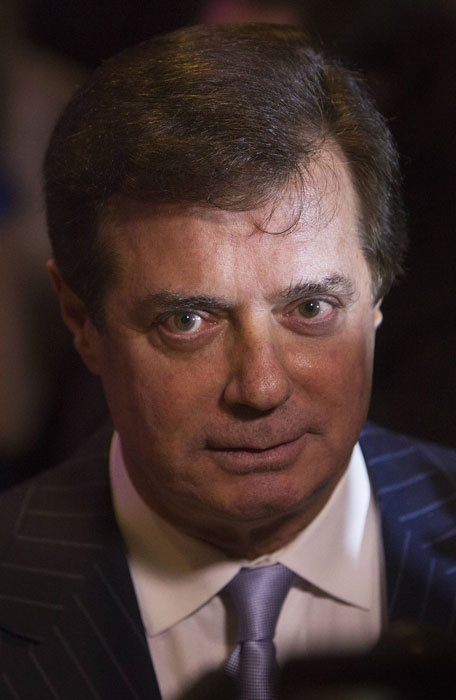 Victor J. Blue for Bloomberg
Victor J. Blue for Bloomberg
What did the president know and when did he know it?
That question catapulted Sen. Howard Baker, R-Tenn., into national prominence when he asked it repeatedly to witnesses during the televised hearings. For all of the vitriol and hatred many feel toward President Donald Trump, that should remain the lodestar for anyone contemplating impeachment and removal from office.
Consider what we already know about Manafort. He lived extravagantly but was nonetheless heavily in debt when he took the job as Trump's convention manager in March 2016. He was elevated to the top job in June but left the campaign in August with scandal buzzing around him because of his pre-Trump activity in Ukraine on behalf of the Russian-backed onetime Ukrainian President Viktor Yanukovych. Given Manafort's prior ties and his compromised financial situation, it is entirely plausible that Manafort acted entirely on his own in providing whatever aid and information he did to individuals with ties to the Kremlin.
That's not to say this is what did happen; we don't know that, either. It's merely to say we simply don't know enough to come to a judgment. Impeachment is a highly serious matter, a course of action that would surely weaken the United States in its foreign relations during the period of the proceedings. Removal from office is more serious still. It would surely inflame the already burning passions that poison our domestic politics. Doing either without due care or upon circumstantial evidence would harm our nation for many years to come.
Nevertheless, we need to get to the bottom of this, in part because the revelations are so potentially damaging themselves. President Richard M. Nixon's crimes were bad, but none of them raised the specter of sacrificing national security in the name of political advantage. President Bill Clinton's wrongdoings were, if anything, even pettier, although lying under oath is a serious offense. Clinton's wrongdoings also raised no possibility that our nation's global standing or security could be impaired.
The questions swirling around the Trump campaign are clearly different. Russia is an authoritarian state and an adversary of the United States in many global affairs. If the president did authorize efforts to solicit campaign assistance from an adversarial, if not hostile, power, it would be reasonable for people to conclude that his subsequent judgment regarding that power could be impaired. Under such circumstances, reasonable people could conclude that such a dalliance could constitute "high crimes and misdemeanors" and warrant impeachment and removal.
But we're not there yet. Baker's question is crucial. Americans remain loath to impeach a president. Even today, polls show that impeachment is overwhelmingly opposed by the full electorate (even as it is supported overwhelmingly by Democrats). Moving forward would be folly without either direct evidence of Trump's personal involvement in collusion or strong circumstantial evidence that further investigation would uncover that.
Special counsel Robert Mueller's investigation should continue, although prudence dictates that it should be concluded well before the 2020 campaign begins in earnest. But impeachment hearings or motions should meet the Baker standard. Americans get a chance to remove a president by other means if any evidence of misdeeds falls short of that standard. Those means are called elections, and departure from that democratic process should occur only in the gravest of circumstances.
Every weekday JewishWorldReview.com publishes what many in the media and Washington consider "must-reading". Sign up for the daily JWR update. It's free. Just click here.
(COMMENT, BELOW)
Henry Olsen, senior fellow at the Ethics and Public Policy Center, is the author of "The Working Class Republican: Ronald Reagan and the Return of Blue-Collar Conservatism." (Order in KINDLE edition at a 64% discount by clicking here. Or buy the book at a 37% discount by clicking here or ).
Previously:
• 01/07/19: Impeach the 'Emm-Effer'? Darn RIGHT they should!
• 01/04/19: Trump won't lose in a long shutdown
• 11/12/18: Think the shutdown will hurt Trump? Think again
• 11/12/18: The GOP's new voter wellspring
• 07/30/18: November's Senate races in two states could determine control of the chamber
• 06/04/18: Republicans' Millennial Problem Isn't What You Think
• 02/26/18: Trump, Twitter, and the GOP's Improving Poll Numbers
• 07/05/17: How Reagan would fix Obamacare
• 02/08/17: The last, best hope to re-Reaganize the GOP


 Contact The Editor
Contact The Editor
 Articles By This Author
Articles By This Author